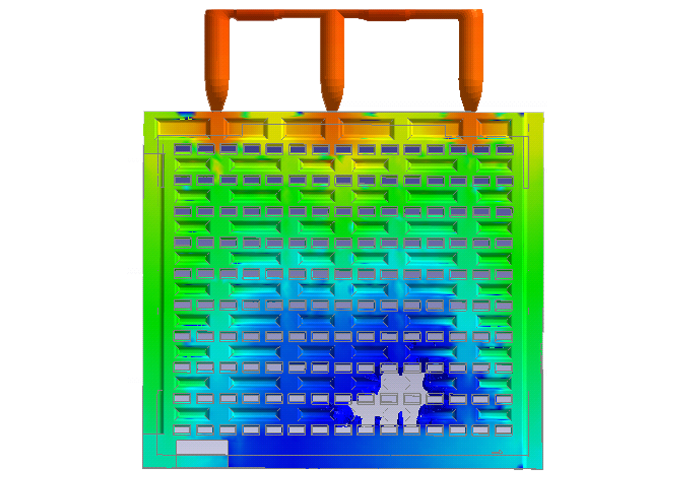
Liquid Crystals Polymers (LCP)
ESPECIALLY FOR OUR USERS
Liquid crystal polymers (LCP) are halogen-free high-performance polymers with exceptional high-temperature behavior in thin-wall applications with outstanding dimensional stability and accuracy. The heat resistance of LCP’s reaches up to 240°C, short-term even up to 340°C. Furthermore, liquid crystal polymers exhibit a very low heat content of fusion, which enables short cycle times, flash-free injection molding and a very high tensile strength and tensile modulus. However, applying them in injection molding simulation poses some unique challenges.
Many LCP’s possess a peculiar rheological behavior: the temperature dependence of their viscosity is different from other thermoplastics. For most thermoplastic polymers, the activation energy is independent of the temperature. That’s why the Arrhenius or WLF model can extrapolate viscosity behavior in a very broad temperature range. However, the activation energy can be so diverse at different temperatures for LCP materials, that extrapolating the viscosity behavior may lead to wrong simulation results. Usually the viscosity of thermoplastics is measured in a relatively narrow temperature range, in a ca. 40°C wide domain around the recommended molding temperature. The first step of characterizing LCPs is to perform the viscosity measurement in a much wider temperature range. Secondly, the varying activation energy must be taken into account in the simulation; this is possible in Moldex3D by using an additional MTC file besides the MTR material file. The Moldex3D lab is capable of measuring the rheological properties of LCPs and creating the corresponding material models and files.
If you would like to improve the accuracy of your simulations with LCP materials, please contact SimpaTec, we are ready to help you with the measurements and applying the material data in Moldex3D.
